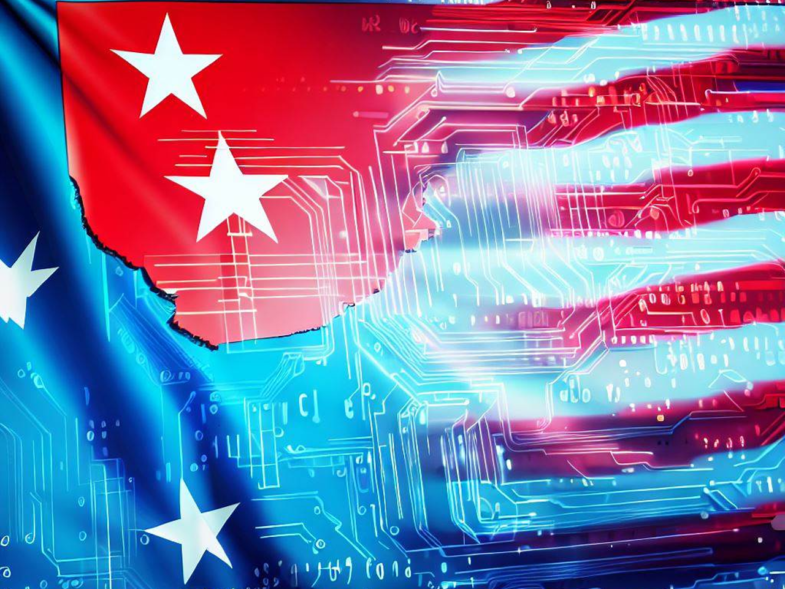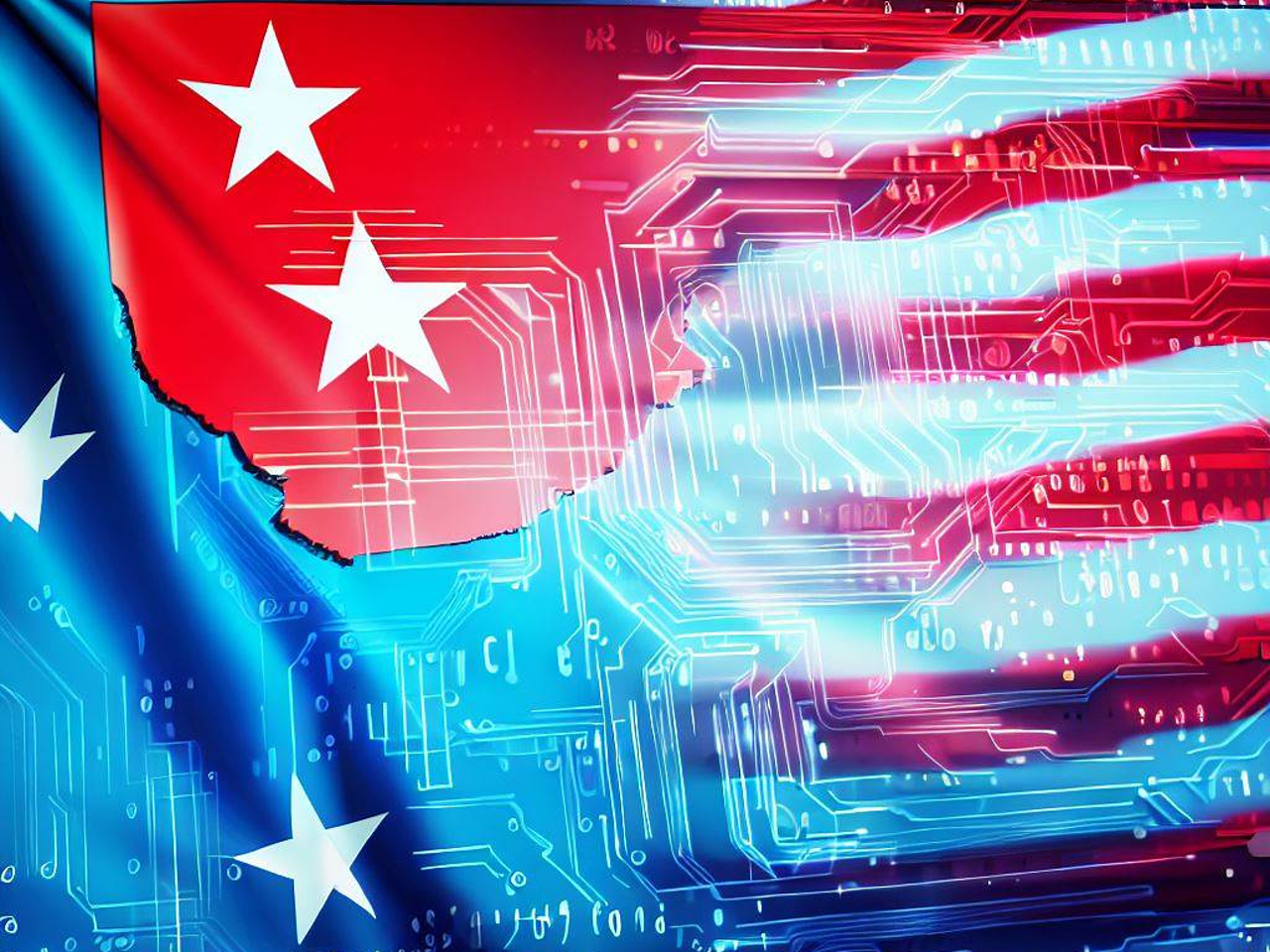Examine the far-reaching effects of the US ban on Chinese high-tech investment. Analyze innovation, security, and global implications in this comprehensive exploration.

On August 10, U.S. President Joe Biden announced a US ban on Chinese high-tech investment, encompassing quantum computing, advanced chips, and artificial intelligence. This aligns with previous anti-China measures, including Trump’s Huawei ban and Biden’s chip export restrictions, all aimed at curbing China’s technological advancement.
Set to be enforced next year, this ban is part of the broader U.S. strategy of a new Cold War against China, which commenced after the 2008 financial crisis and intensified under Trump. Biden has not only continued this stance but has also systematized it, with more measures potentially in the works, including additional export bans on advanced technology components.
The US ban on Chinese high-tech sectors carries mixed implications. It could limit American companies’ access to China’s market, potentially impacting profits, while triggering retaliatory measures. Effects encompass financial, technological, and social aspects.
The impact of the US ban on Chinese high-tech can be categorized into three areas: financial, technological, and social. Here are several adverse consequences resulting from the US ban on Chinese high-tech sectors.
Financial losses of US ban on Chinese High-tech
The US ban on Chinese high-tech will make it more difficult for US companies to access the Chinese market, which is a major market for many US businesses. This could hurt sales and profits for US companies, and could lead to job losses in the US. The reduced access to the Chinese market could have a number of negative financial implications for US companies.
Loss of sales:
The Chinese market is a major market for many US companies. In 2021, US exports to China totaled $179 billion. If US companies are no longer able to sell their products in China, they will lose out on a significant source of revenue.
Lower profits:
Even if US companies are able to continue selling their products in China, they are likely to face lower profits due to the ban. This is because the ban will make it more difficult for US companies to compete with Chinese companies. Chinese companies have a number of advantages over US companies, including lower costs, government subsidies, and access to a large pool of skilled labor.
Job losses:
The loss of sales and profits could lead to job losses in the US. This is because US companies may need to lay off workers in order to cut costs.
Decreased investment:
The ban could also lead to decreased investment in the US. This is because investors may be less likely to invest in US companies if they are no longer able to access the Chinese market.
Technical Losses of US ban on Chinese High-tech
China has already said that it is “very disappointed” with the ban, and has threatened to retaliate. This could take the form of tariffs on US goods, restrictions on US investment in China, or other measures that could hurt the US economy.
Impeding Innovation:
The US ban on Chinese high-tech could make it more difficult for US companies to innovate and develop new products. This is because China is a major source of innovation in a number of high-tech sectors, such as artificial intelligence and quantum computing. If US companies are no longer able to access the Chinese market, they will lose out on a valuable source of innovation.
Development of new technologies:
China could accelerate the development of new technologies in areas that are critical to national security, such as artificial intelligence and quantum computing. This could give China a competitive advantage in the global market and make it more difficult for the US to maintain its technological leadership.
Tariffs on US goods:
China could impose tariffs on US goods, making them more expensive for Chinese consumers. This could hurt US businesses and lead to job losses in the US.
Restrictions on US investment in China:
China could restrict US investment in China, making it more difficult for US companies to do business in the country. This could hurt US businesses and lead to job losses in the US.
Social Losses of US ban on Chinese High-tech
The ban is likely to increase tensions between the US and China, which could have a negative impact on global trade and cooperation. This could make it more difficult for the two countries to address common challenges, such as climate change and terrorism.
The increased tensions between the US and China could have a number of negative social implications, including:
Strained Relations and Eroded Trust:
The retaliation from China could damage the relationship between the two countries and make it more difficult to cooperate on issues of common interest. It could also lead to a decrease in trust between the two countries, which could make it more difficult to do business in each other’s markets.
Increased hostility and distrust:
The ban could lead to increased hostility and distrust between the people of the US and China. This could make it more difficult for people from the two countries to interact with each other, both in person and online.
Increased racism and discrimination:
The ban could also lead to increased racism and discrimination against Chinese people in the US. This could make it more difficult for Chinese people to live and work in the US. There are an estimated 5.4 million Chinese people living in the United States as of 2023. This makes Chinese Americans the largest Asian ethnic group in the US.
Increased political polarization:
The ban could also contribute to increased political polarization in the US. This could make it more difficult for the US government to address other important issues, such as climate change and healthcare.
Increased risk of conflict:
The increased tensions between the US and China could also increase the risk of conflict between the two countries. This could have a devastating impact on the global economy and could lead to a loss of life.
The increased tensions between the US and China are a serious concern. It is important to find ways to reduce these tensions and to promote cooperation between the two countries. This is important for the sake of both countries and for the sake of the global community.
The Positive Side
On the positive side, the US ban on Chinese high-tech could help to protect the US from China’s growing technological prowess. China is investing heavily in artificial intelligence, quantum computing, and other cutting-edge technologies, and the US is concerned that China could use these technologies to gain a military advantage. The ban could help to slow China’s technological development and give the US a chance to catch up.
In addition, the ban could help to create jobs in the US. The US has a strong technology sector, and the ban could lead to more investment in these companies. This could create new jobs and help to boost the US economy.
Conclusion
The ban’s potential outcomes include hindering China’s progress in vital national security fields like AI and quantum computing, potentially boosting employment within the US tech industry through investments in alternative technologies, and solidifying America’s standing in the global technology competition.
Overall, the negative effects of the US ban on Chinese high-tech sectors are significant. The ban could hurt US businesses, lead to job losses, and increase tensions between the US and China. It is important to weigh the potential benefits of the ban against the potential risks before making a decision about whether to implement it.
It is important to note that these are just some of the potential effects of the ban on the US. The actual effects will depend on a variety of factors, such as how China responds to the ban and how the US economy performs in the coming years.
